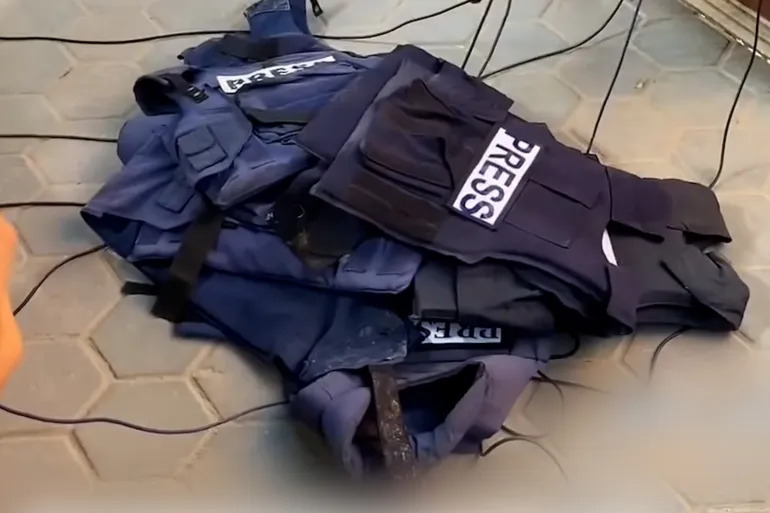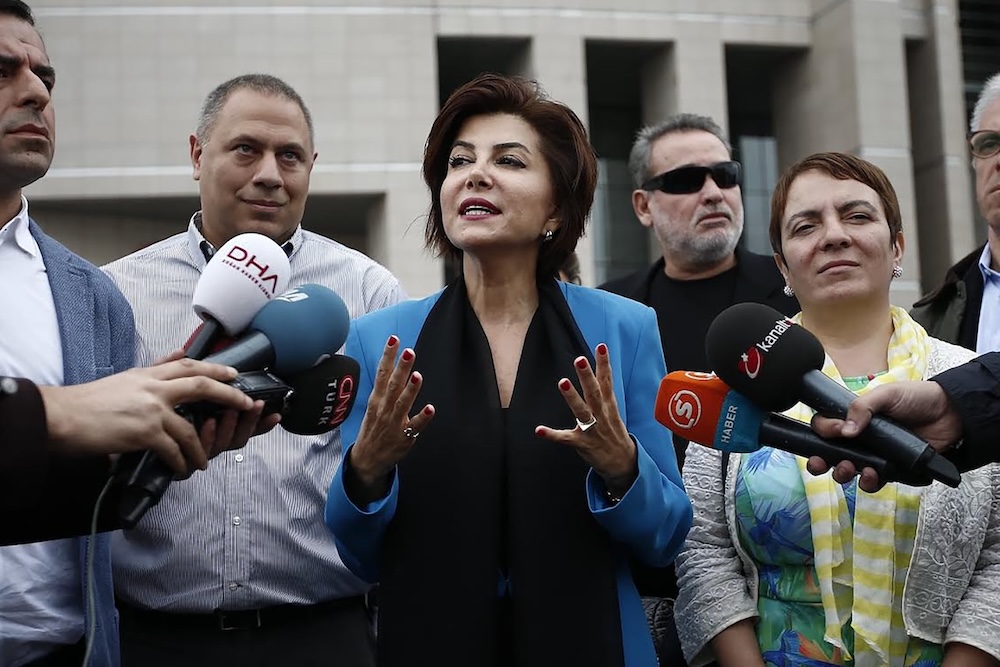
Journalist Mustafa Ayyash Faces Extradition to Austria in Major Press-Freedom Case
November 11, 2025
Inquiry Submission Raises Red Flags Over Journalist Surveillance in Northern Ireland
November 11, 2025Turkish broadcast journalist Sedef Kabas (C), speaks to media members after her trial on October 6, 2015 in Istanbul. Sedef Kabas, a broadcast journalist and anchorwoman on the CNN-Turk channel, had been briefly detained in January for posting a tweet and faced up to five years in jail on charges of "targeting a public servant tasked with fighting against terrorism." AFP PHOTO/OZAN KOSE (Photo credit should read OZAN KOSE/AFP via Getty Images)
November 11, 2025 – Turkey –
Turkish journalist and political commentator Sedef Kabaş has been sentenced to 10 months in prison after a court in Istanbul convicted her of “spreading false information” over a social-media post referencing the Central Bank President. The sentencing, detailed by IFEX and local rights monitors, marks yet another flashpoint in Türkiye’s escalating crackdown on dissenting journalism and highlights the sweeping reach of the country’s disinformation legislation.
Kabaş, a well-known media figure with decades of experience, was prosecuted under Article 217/A of the Turkish Penal Code — a provision introduced in 2022 allowing authorities to criminalise content deemed “false” and capable of disrupting public order. Her post addressed economic governance, an increasingly sensitive topic in Türkiye amid inflation, political tensions, and public debate over the independence of financial institutions. Although the court ruled that her statement constituted “misleading information,” press-freedom groups emphasise that no evidence was presented to demonstrate harm, disruption, or intent to deceive.
The sentencing has sparked widespread concern among journalists, civil society organisations, and international observers. IFEX, alongside Turkish media unions, notes that the disinformation law has been repeatedly criticised for its vague language, lack of clear definitions, and broad prosecutorial discretion — conditions that enable authorities to target critics, journalists, and activists. Legal experts warn that the law fundamentally shifts the burden of proof onto journalists, forcing them to justify their reporting or commentary even when discussing matters of public interest.
Kabaş’s conviction is part of a broader pattern: in recent years, dozens of journalists in Türkiye have faced criminal proceedings for reporting on political corruption, economic instability, military operations, and human-rights issues. Many now work under constant fear that ordinary reporting could be reinterpreted as criminal activity. International organisations, including the UN Special Rapporteur on Freedom of Expression, have repeatedly urged Türkiye to repeal or substantially amend laws used to stifle media freedom.
The journalist plans to appeal the ruling, arguing that her conviction violates constitutional protections on free expression and the public’s right to access information. Advocates stress that unless Türkiye reverses its punitive approach to journalism, the disinformation law will continue to erode democratic debate and limit independent scrutiny of state institutions.
For press-freedom defenders, Kabaş’s case is not an isolated incident but a warning: in Türkiye’s current climate, even commentary on economic policy can lead to imprisonment.
Reference –
https://ifex.org/turkey-journalist-handed-10-month-prison-sentence-for-spreading-false-information/




